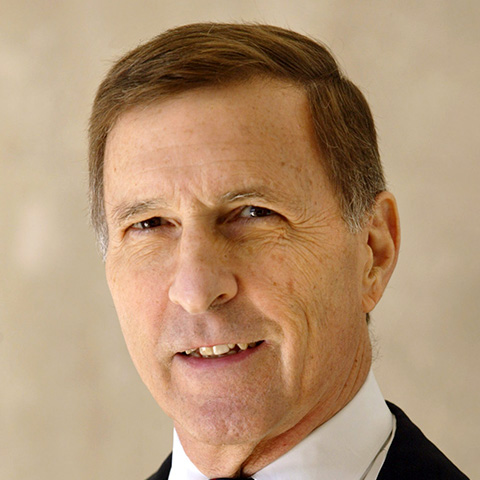Pick up a cell phone and the likelihood that it’s a Motorola is fairly high. But the communications company that helped put wireless phones in the hands of people around the world may never have become what it is today without the leadership of industry veteran Robert Galvin.
The son of Motorola Inc. founder Paul Galvin, Robert started working for the Schaumburg, Ill.-based company as a teenager in 1940. By 1959, he was the CEO of the company and served as chairman until his retirement in 1990. Galvin remained on the board for a few years after stepping down as chairman, but he hasn’t been involved with the company for some time now.
Motorola went on to become one of the world’s largest cell phone manufacturers after he left, and Galvin has remained dedicated to the technology and underlying science behind it, by actively supporting the organizations that research new technologies.
“[Motorola] was the beneficiary of the great sciences of the years before,” Galvin says.
After retiring from Motorola, Galvin took on various other roles. For example, he chaired a task force on alternative futures for the Department of Energy, which became known as the Galvin Commission, and chaired the chip consortium, International Sematech.
Currently, Galvin sits on the board of trustees of the Santa Fe Institute, a private, nonprofit research and education center in Santa Fe, N.M. He also is the vice chairman of the board of trustees for the Universities Research Association Inc., a Washington, D.C.-based consortium of 90 research-oriented universities in the United States and abroad. And staying close to his past work in communications, he co-chaired a commission with the Center for Strategic and International Studies on radio frequency spectrum management.
“This is a very complex issue, we would like to find ways of making [the spectrum] more efficient,” Galvin says.
Even though Galvin, 81, says he now tries to take it easy, he recently wrote a book called America’s Founding Secret: What the Scottish Enlightenment Taught our Founding Fathers, which he will be discussing at an upcoming event in San Francisco on April 21.
At the event, he will be given the Alexis de Tocqueville Award by the Oakland-based Independent Institute, a nonprofit, public policy research and educational group that sponsors studies on social and economic issues. The Independent Institute is honoring Galvin for his lifetime of achievement.
“Over a 60-year career, Robert Galvin has had a profound effect on economic well-being, technological innovation, telecommunications and public service in the United States and around the world,” says David Theroux, founder and president of the Independent Institute. “Future business leaders would be well-served to look to him as a role model.”
Galvin says he is enjoying retirement and spends time doing things like reading and skiing. But Galvin has even managed to involve science in his leisure activities. For example, he likes to go on ski trips with his wife and other couples. But when he isn’t on the slopes, he hosts seminars back at the lodge with the people that he invites on the ski trips, usually other scientists.
“So when we get together we say, ‘Well what’s new in your area,’” Galvin says, adding that his ski trip seminars keep him intellectually active.
Overall, Galvin says he’s happy with his life now, but modestly admits that he no longer looks at himself as being an important influence.
“Quite frankly, I don’t think the world is depending on me too much at this time,” Galvin says.







